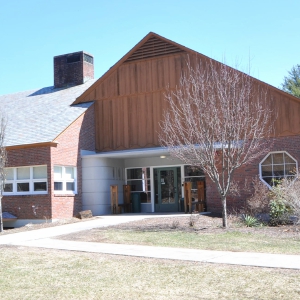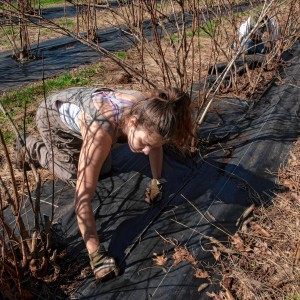Volunteers call, write on behalf of ailing Iraqi man awaiting deportation
| Published: 07-28-2017 2:34 PM |
NORTHAMPTON — Longtime Hampshire County resident Niberd Alzendi Abdalla has been held for deportation for seven weeks, and advocates say he now needs a wheelchair to get around the halls of the facility containing him.
Organizers expressed concern for Abdalla, an Iraqi immigrant who has lived more than 40 years in the U.S., during a call and letter-writing session at the Pioneer Valley Workers Center on Thursday.
They assert he is not getting medications for his respiratory ailments as regularly as his doctors here in Northampton recommend — an assertion that prompted the state attorney general’s office to get in touch with officers detaining him at the Suffolk County House of Correction.
“I’m one of Niberd’s neighbors in Easthampton and I would like him to be released,” Carolyn Cushing said in a phone call to officials.
Echoes of automated voices urging callers to leave messages bounced around the room.
“Hi, I’m calling about two individuals who are in ICE detention,” Zana Shaw said in a voicemail. “I’m a resident of Amherst and it’s important to me that these individuals are looked at carefully — both of these are cherished members of our community.”
Center organizer Rose Bookbinder said the organization is working with Massachusetts Jobs with Justice to appeal the asylum they say was denied Abdalla and Francisco Rodriguez, a 43-year-old janitor at MIT who was detained by Immigration and Customs Enforcement earlier this month under similar circumstances.
“I haven’t been able to get through when I call,” one woman said.
Article continues after...
Yesterday's Most Read Articles
Leave messages, her comrades insisted.
The center collected over 1,500 signatures from western Massachusetts residents calling for Abdalla’s release. Congressman Jim McGovern submitted the signed petition earlier this month alongside a formal letter of his own.
“It is clear to me that he is regarded as a valuable member of his community. Mr. Abdalla has a son, two grandchildren, a partner and his elderly parents, who he has helped to support in Easthampton for over 20 years,” McGovern wrote in the letter, which ended with a request the agency extend “every full and fair consideration” regarding the case.
ICE spokesman Shawn Neudauer issued a statement in response to questions from the Gazette.
“ICE arrested Niberd Abdalla, an unlawfully present citizen of Iraq, during a check-in at the ICE office in Burlington, Massachusetts,” he said. “Abdalla was previously issued a final order of removal by an immigration court in 2010. He is being detained by ICE at the Suffolk County House of Corrections in Massachusetts, where he will remain pending his removal from the United States.”
On Monday, a federal judge in Detroit ordered the Trump administration to suspend the deportation of some 1,400 Iraqis, Abdalla among them, saying they must be given a chance to challenge their deportations so that those facing “grave harm and possible death are not cast out of this country before having their day in court.”
Abdalla’s attorney, Buz Eisenberg, said he has filed to reopen the case on grounds returning him to Iraq would endanger him.
Fresh from a call, Cushing said she’s disturbed by what she termed President Donald Trump’s fear tactics and policies surrounding immigrants. She said Abdalla, 57, is not a criminal, but a valued member of the community who deserves to stay. She said he has health problems and there’s no reason for him to be sent to a country he hasn’t known since he was a child.
“We are neighbors,” she said. “He’s not some number.”
“We’re not delinquents like Trump says we are,” said Carlos Oquelí, a Guatemalan immigrant. “They’re coming to this country because they don’t have other options.”
Abdalla’s sister, Dalia Alzendi, of San Diego, said her parents pushed Abdalla to come to the U.S. in 1975, when he was 15, because they were scared for his safety. For the 20 years that followed, he was on his own.
“Meanwhile, he was a child. He wanted to be with his family, his mom and dad. But he had no choice but to stay,” she said recently, explaining her other brother, a targeted anti-Ba’athist, died under suspicious circumstances. “Niberd is more American than Iraqi. He was raised here by his American friends.”
She said her family was on the run in Iraq before he came to the U.S. She said the traumatic childhood he endured was compounded by the fact he came to America at age 15, alone to fend for himself in a new country.
“He was a traumatized kid and he’s still a traumatized adult. He never looked after himself,” she said, saying he applied for legal status several times after his visa expired but once he hit a wall he stopped trying. “After four or five attempts to fix his issue and couldn’t, he got really helpless.”
She said he’s long been focused on helping others to his own detriment.
“To be honest, the people who have PTSD — they do neglect their own self,” she said. “They won’t really do any self care.”
She said he speaks Arabic as if he were an American who’d learned how to speak it, with an American inflection. And though he’s Kurdish, he doesn’t speak it since he was raised in Baghdad.
“If he would go to Kurdistan I don’t know how he’d manage. He doesn’t speak the language,” she said, adding he can’t go elsewhere in Iraq, either, because “they’d consider him Kurdish.”
“He’s going to be definitely exposed to the terrorists there, because he’s American, actually.”
She implored those with power to see Abdalla for who he is and the hard life he’s lived.
“People sometimes just see the surface, they do not know what is the root of it,” she said. “People, they judge and they do not know what is going on.”
Amanda Drane can be contacted at adrane@gazettenet.com.

 Amherst regional district towns seek middle ground on school increase
Amherst regional district towns seek middle ground on school increase Leverett Town Meeting voters will decide cease-fire call, budgets, town elections
Leverett Town Meeting voters will decide cease-fire call, budgets, town elections  A Look Back: April 22
A Look Back: April 22 Regional farming alliance strengthens educational, networking opportunities for apprentices
Regional farming alliance strengthens educational, networking opportunities for apprentices
